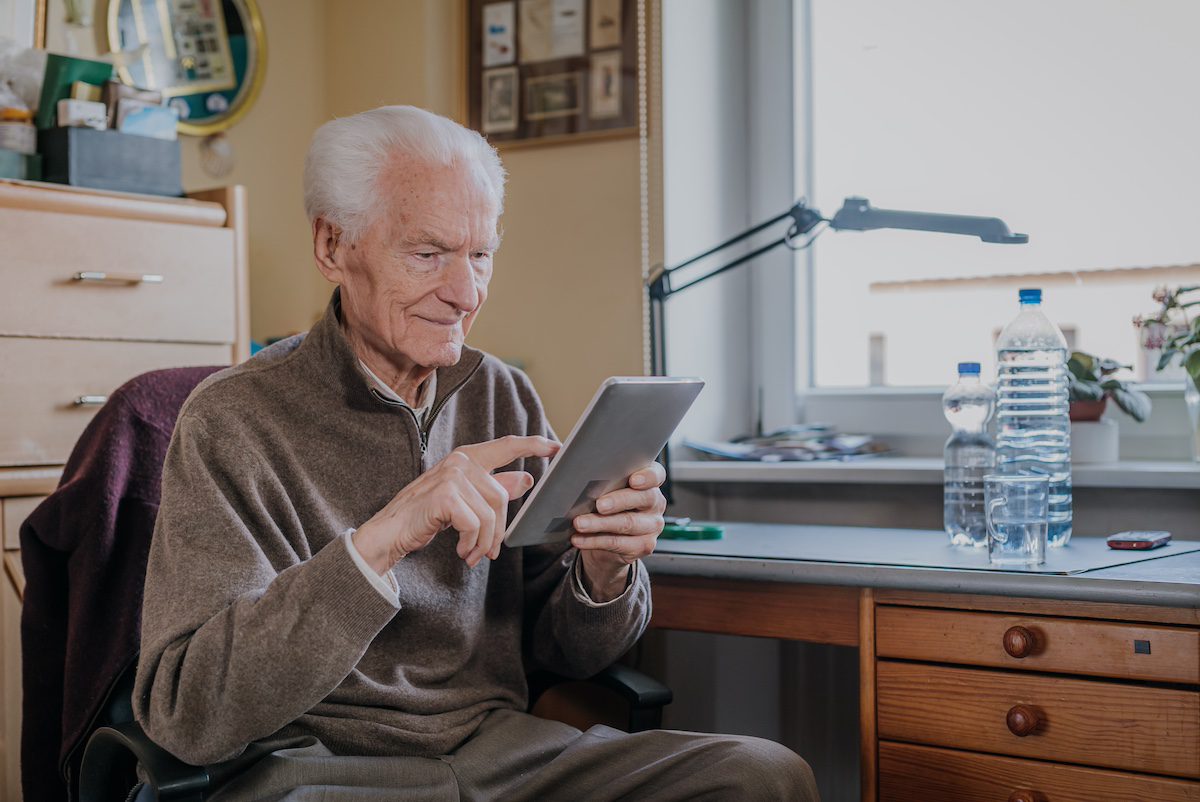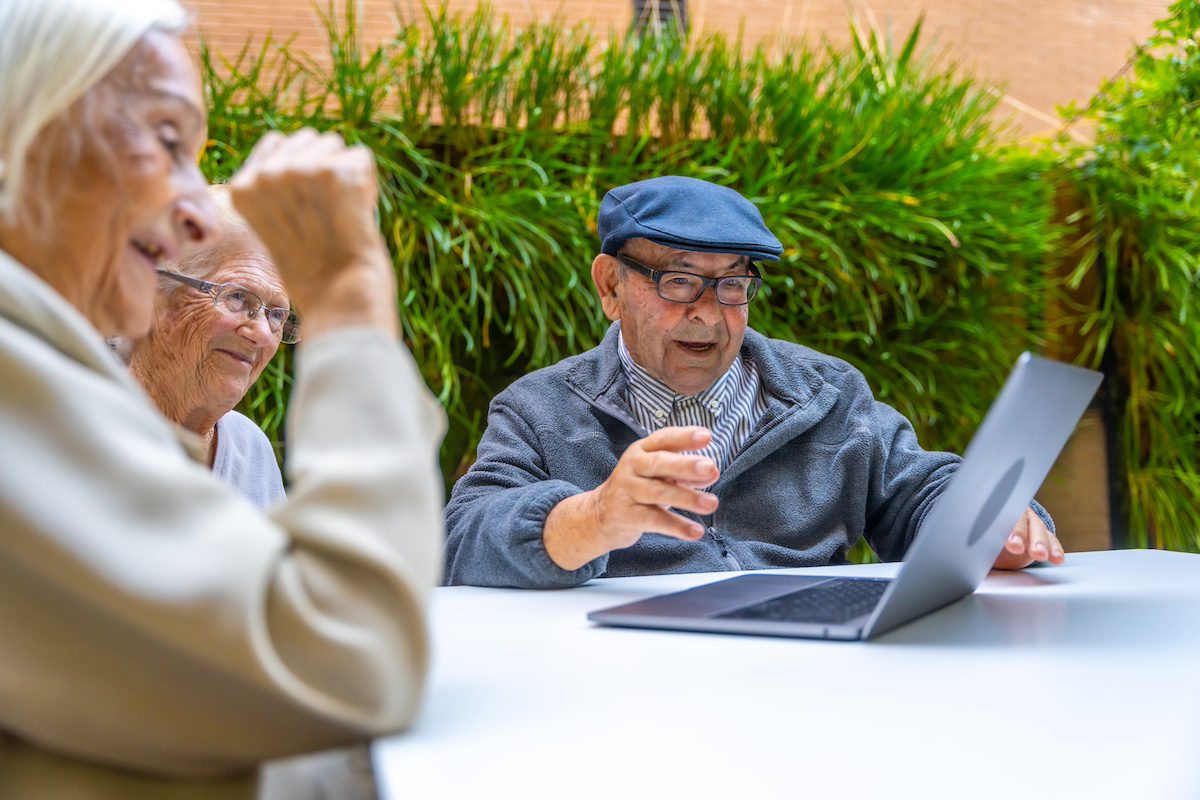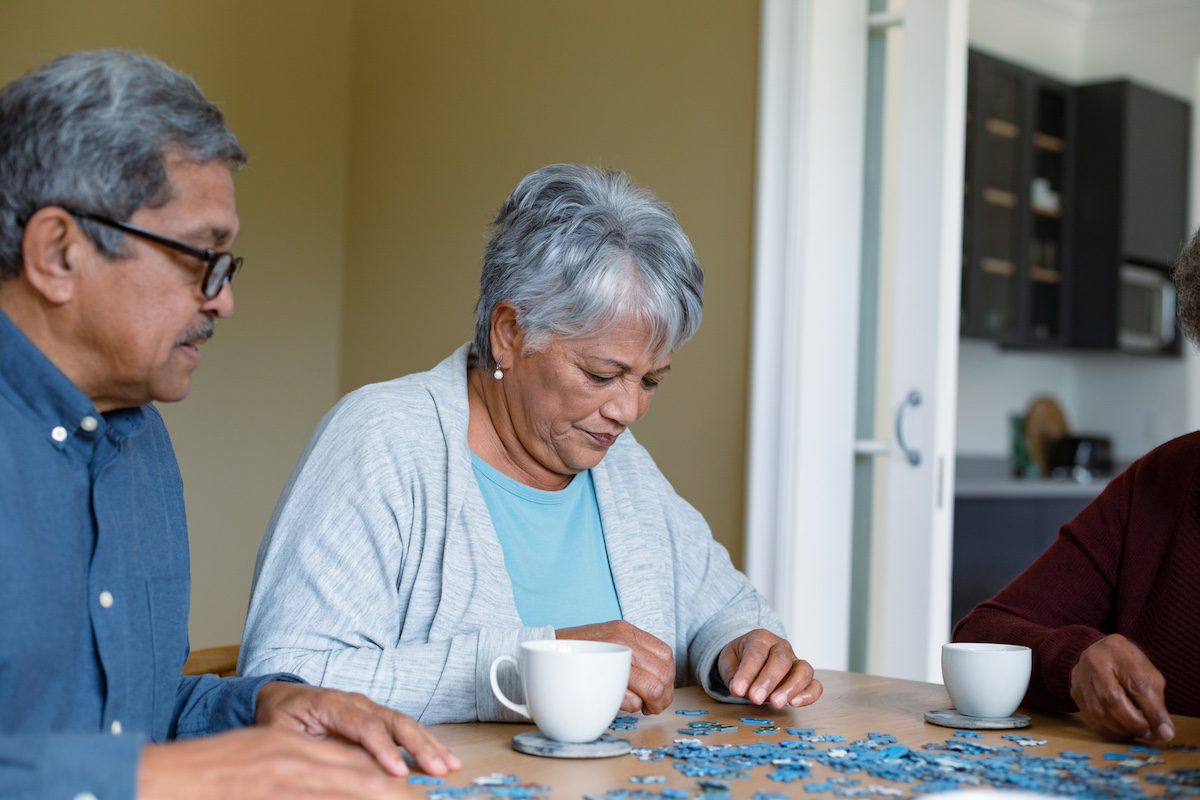As your loved one moves into end-of-life care, they may have questions about death and how their final days will look.
This uncertainty can cause uneasiness, distress and hopelessness. While physicians, nurses, and caregivers work to take care of the patient’s physical needs, spiritual and emotional support is vital to the patient’s end-of-life care.
Hospice chaplains can be an excellent resource for patients’ spiritual and emotional needs. While hospice chaplains are entirely optional, the benefits of visiting with them, even for a few minutes a week, can be seen in our patients and families of our patients.
To help us explain the impact chaplains have on a patient’s end-of-life experience, we talked with two Crown Hospice of Cape Girardeau and Poplar Bluff chaplains, Elijah Allen and Chad Bles. Keep reading to see how they helped us define the chaplain’s role in hospice care, what chaplain visits look like and the benefits of spiritual support.
What is a Chaplain?
“Hospice chaplains care for the spiritual needs when it comes to end-of-life care for the patient, the family caregivers and those that are involved in the life of the patient,” Chad said.
Chad is currently a pastor for a church plant in the area and has served two years in a chaplain role at Crown Hospice of Cape Girardeau and Poplar Bluff. He said many times he coordinates with their local pastor or minister to provide care for many of his Crown Hospice patients. However, this isn’t always the case. Some patients have been away from their church for an extended due to a long-term illness; others may not have any spiritual background or have one that is distinctly different from a traditional chaplain.
“Each patient is spiritually drastically as different as our patients are when it comes to their diagnosis,” Chad said. “One of the things about hospice chaplaincy that’s unique is we have people from all walks of life and various spiritual backgrounds.”
What Does a Hospice Chaplain Visit Look Like?
Chaplain visits can vary greatly depending on the number of visits the chaplain makes and the patient’s spiritual needs.
A “Spiritual Check-In”
Hospice chaplain Elijah Allen has served ten years total as a chaplain and four with Crown. Elijah said his initial visits allow him to perform a “spiritual check-in” to see where the patient is spiritually and emotionally.
“If a patient and family are open to us coming, the first thing we do is a spiritual assessment,” Elijah said. “We try to measure where a person’s been in life spiritually and if they have any connections or preferences. Then we try to assess their current needs.”
Understanding the Patient’s Condition
Elijah said he assesses the patient’s physical condition to serve them better. Hospice chaplains understand that their patients’ physical state will alter how their visits go. While not all chaplains ask these questions, here are two examples of questions Elijah asks his patients:
- How was your last meal?
- Did you rest well last night?
Understanding this, he can then decide how to proceed with spiritual care. Patient visits can vary in length. If the patient is feeling well and has a desire to talk with the chaplain, visits can be close to an hour. If they aren’t feeling well, it may only last around 15 minutes.
“I try to keep my visits fairly brief if someone doesn’t feel very good,” Elijah said. “I try to keep a 15-minute window unless they need something more.”
What Does the Chaplain Do During the Visit?
A traditional visit may include:
- Friendly conversation
- A scripture reading
- A devotional thought
- The singing of a hymn or two
- Prayer
However, at Crown Hospice, we understand that people of different beliefs have end-of-life needs that differ from traditional visits. Some of our patients have specific end-of-life rituals that tie to their culture. Others may want to talk through some of their burning questions.
“Each visit’s very different, but the goal is always the same,” Chad said, “that just as our nurses and providers are providing physical treatment, we want to make sure patients are at a spiritual place of peace.”
How Do Patients and Their Families Benefit from Spiritual Support?
Three of the most significant benefits of chaplain visits and spiritual support are:
- An opportunity to reconcile
- Shared suffering with the patient and family
- Peace-of-mind and comfort
Opportunity to Reconcile
If your loved one has lingering conflicts with family members, old friends or others, a chaplain will encourage them to reach out to forgive or ask for forgiveness. Reconciliation leads to spiritual peace-of-mind and allows the patient to let go of emotional baggage.
“We’re gonna talk about and think about reconciliation and anything that needs to be resolved in their life or if they need to reach out to extend forgiveness to somebody,” Elijah said.
Shared Suffering
While hospice chaplains spend time offering encouragement to their patients, they also empathize with the patient and grieve with their family.
“I feel like in carrying our cross, God has revealed to me the importance of shared suffering,” Elijah said. “We can’t always just fix things. We don’t always have the right answer. All we can do is suffer with them.”
Chad and Elijah have seen firsthand how being there with the family and the patient can leave a lasting impact.
“You might think, ‘well, if we don’t fix their situation, then we’re not really meeting their needs,'” Elijah said, “but just being there with them in the situation is actually meeting a need.”
The presence of a hospice chaplain can help your family through the grieving process as your loved one gets closer to death.
Peace-of-Mind and Comfort
Death and spirituality are connected as most hospice patients think about what happens after passing on.
“It doesn’t matter what our journey’s been like up to that point, we all come face-to-face with this reality that, that there’s something spiritual when it comes to life and death,” Chad said.
Helping patients face some of their most important questions about life is key to the chaplain’s role in spiritual care. Chaplains don’t claim to have the answers to these questions, but rather, to be there with patients as they wrestle these questions and find peace. After a patient has worked through these issues, they can feel peace and joy in their final days.
“A thought that I often mention to people is trying to focus not on what we’ve lost, but on what we have left and trying to do something with what we have left,” Elijah said.
Are you looking for a hospice care group dedicated to caring for your loved one’s physical, emotional and spiritual well-being? Contact us at Crown Hospice today. With locations in Cape Girardeau, MO and Poplar Bluff, MO, we can help add life to you or your loved one’s final days.


